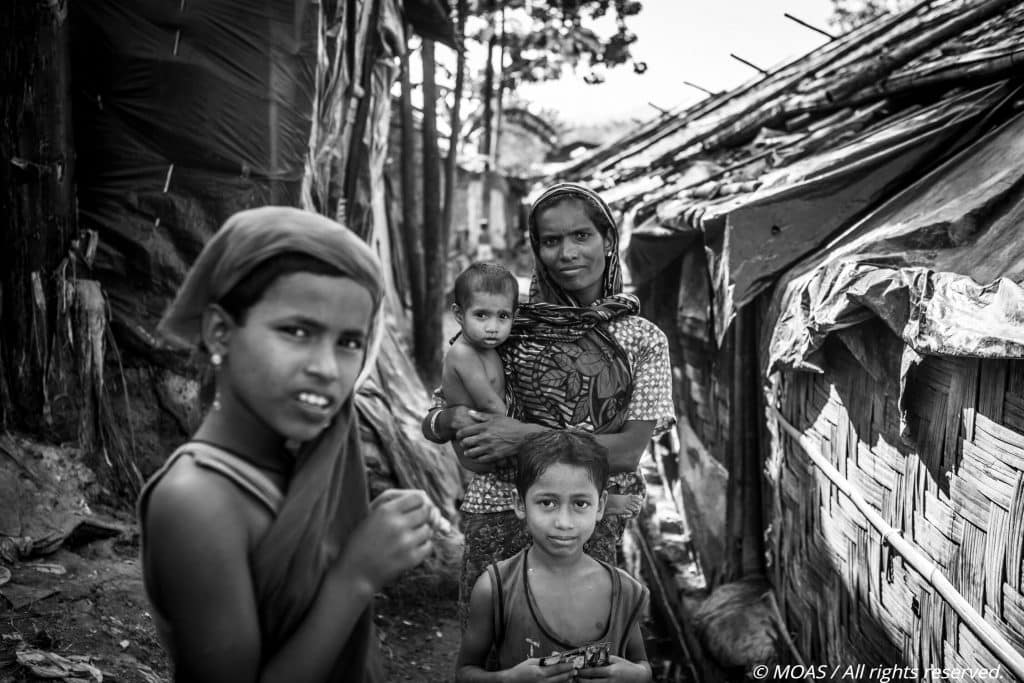Since 2015, when we started to focus on Rohingya refugees, we listened to their testimonies, first in Myanmar and then in Bangladesh. The Rohingya, a stateless Muslim minority, have been persecuted since the 1970s, when entire families were forced to leave Myanmar to escape the continuous restrictions on freedom of movement from the lack of access to the health and the education system, to marginalisation, violence and, frequently, brutal armed repression. Although the Rohingya have lived for centuries in the northern part of the Rakhine region, the Burmese government does not recognize their right to citizenship or other basic human rights, a situation institutionalised by a the Citizenship law enacted in 1982. This legislative framework has generated a migratory flow to the surrounding countries and especially to Bangladesh. In 2017, as a result of the escalation of violence by the Burmese military and some of the population, the Rohingya were forced to flee in dangerous conditions, generating a new wave of migration from Myanmar to Bangladesh. Comparing the current satellite maps with those of a few years ago the rapid growth of the refugee camps in Bangladesh is evident (from the expansion of Kutupalong to the creation of temporary camps such as that of Unchiprang). In the refugee camps several generations of refugees live together, from new arrivals to those who arrived 30 years ago and those who were born and raised within the camps.
Salim is a young boy who was born and raised in a mega camp of 600,000 people, Kutupalong, by refugee parents who fled from Myanmar. His strong testimony reminds us of the restrictions of life within the camp , living in a perpetual condition of extreme insecurity and discrimination. However, Salim has not abandonded his hope to one day be able to study, work and to live a normal life. Salim tells me that because of inadequate medical treatment within the camps he lost his mother and reminds me of the challenges of daily life as a refugee, saying that it feels like he’s in an open-air prison. Salim and many other young people who have grown up in this context daydream about a life outside the camp when one day they will have their citizenship recognised and will be able to return to their country. Salim collaborates with MOAS in Bangladesh on different tasks and is currently working as a trainer in the Flood Rescue Training organised by MOAS to provide expertise for Rohingya refugees and Bangladeshi locals to deal with emergencies and monsoon season.
In this complicated situation, Salim considers himself lucky having received refugee status, unlike those who arrived in recent years and are considered “displaced people” and have therefore not received the same recognition.



